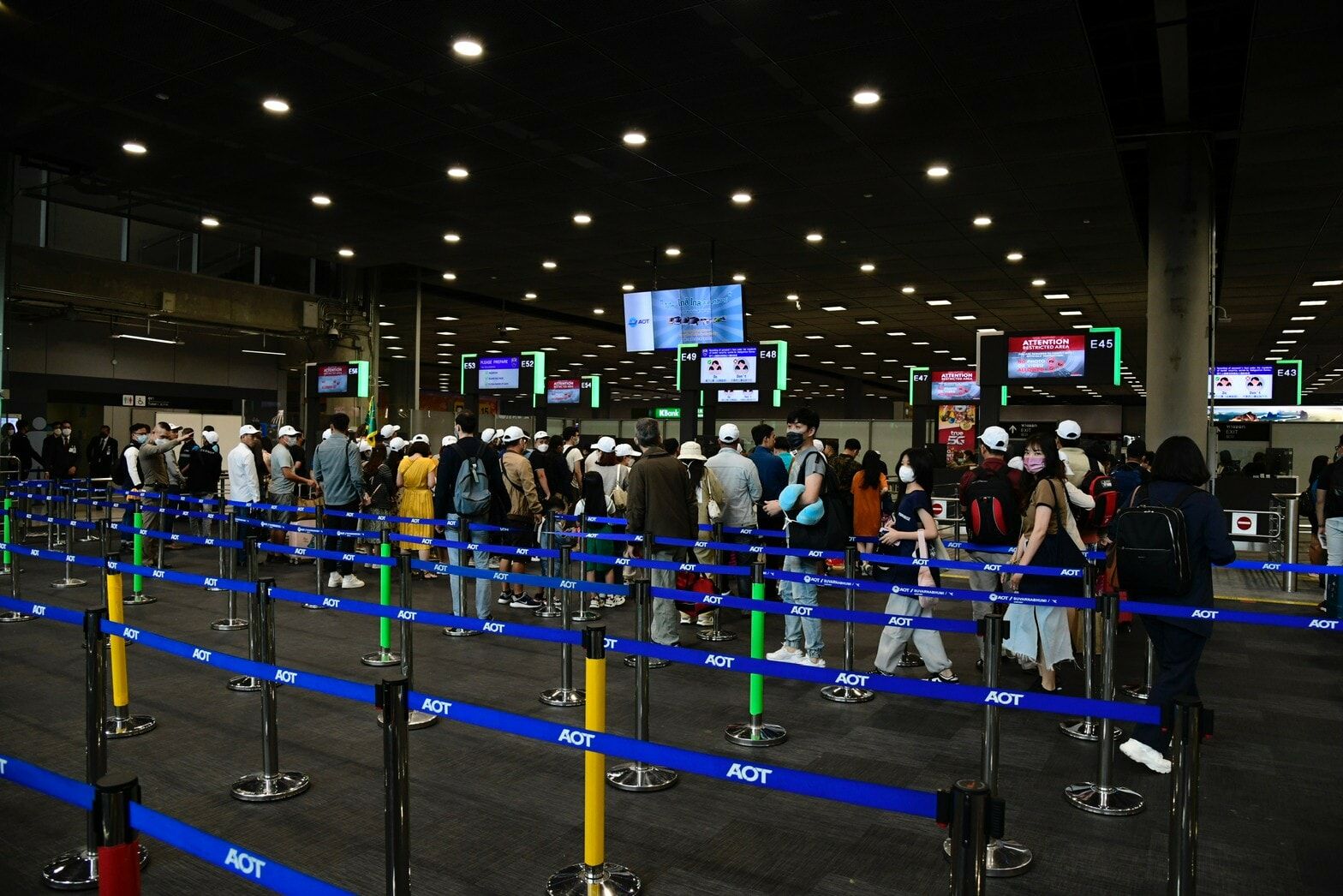Exploring the possibility of a new departure tax in Thailand

As the general election approaches, the introduction of a new tax is considered an extremely sensitive issue and a rare political tactic. Despite this, the Revenue Department moved forward last week to address concerns regarding a potential new departure tax on outbound travellers, based on a 40-year-old “emergency decree”.
The department confirmed it has no plans to introduce a departure tax. The public hearing, conducted through a questionnaire, is merely a “process required by law” to evaluate regulations.
The public hearing regarding a new departure tax has raised concerns among some as it is scheduled for May 3-17. The decree in question was enacted in 1983 to bolster state revenue and control capital outflows to help address trade deficits and maintain the country’s balance of payments, according to the department. Profit exemptions apply to specific groups, including pilots, flight attendants, monks, novices, and Hajj pilgrims.
As per the decree, the maximum levy is 5,000 baht; however, the government authorised the Finance Ministry to determine an effective rate. The ministry previously established a departure tax of 1,000 baht for air travel and 500 baht for land and sea travel. After being in effect for eight years, the law was suspended in 1991, citing improvements to the Thai economy, alleviating the need for the tax collection.
According to the Revenue Department, if a legal hearing transpires, it is in line with the law governing law development and the evaluation of issued laws, which passed in 2019. Consequently, state agencies must hold public hearings on significant laws every five years.
Department spokesman Vinit Visessuvanapoom emphasised that the hearing is to review the departure tax law’s content and is not a preparation to implement the tax. Although the departure tax has been waived since July 1, 1991, the department must hold a public hearing to gather public opinions as required by law.
Next year, the department intends to hold public hearings on the Petroleum Income Tax Act and the Inheritance Tax Act.
Many travellers and tourism operators have raised concerns regarding this issue. Japan and the UK are examples of countries that collect departure taxes. Japan introduced a rate of ¥1,000 per person (approximately 250 baht) included in airfare for all international travellers since January 2019. The UK imposes an air passenger duty charged on airfare for outbound flights. The UK levy applies to local residents but excludes inbound international travellers.
Several local travellers expressed concerns on social media regarding the public hearing on the departure tax, which they see as overly expensive.
Furthermore, there is confusion about other travel taxes, especially the passenger service charge of 700 baht for international flights collected by the airport authority. Later this year, a planned tourism tax of 300 baht for overseas arrivals will be collected.
Charoen Wangananont, president of the Thai Travel Agents Association (TTAA), mentioned that if the government publishes information for a public hearing, the questionnaire should be distributed as widely as possible to the public, even if the department does not plan to implement a departure tax.
Additionally, he pointed out that a rate of 1,000 baht is too expensive given the current economic conditions. Chotechuang Soorangura, TTAA’s vice-president, believes a development plan should be included with any departure tax, so individuals know how the government will use the revenue. He mentioned other countries that impose departure taxes, like Japan, have more reasonable rates, set around 250 baht.
Latest Thailand News
Follow The Thaiger on Google News:


























